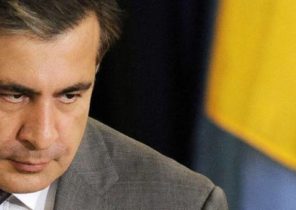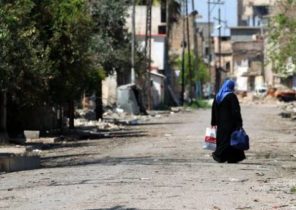
In stories matter of coincidence, irony and pure luck, says the former Ambassador of Finland to Russia, Rene Nyberg (René Nyberg) in his review of the book Rentola Kimmo (Kimmo Rentola) “Stalin and the fate of Finland in 1939, 1944,1948, 1950s”.
The review Nyberg draws attention to the observation Rently that President Paasikivi in many ways resembled Mao. They both could be flexible, but at the same time knew his worth, and allocated to the main.
Suomen Kuvalehti publishes the text of an essay by rené Nyberg the whole thing.
The book is Kimmo Rentola “Stalin and the fate of Finland in 1939, 1944,1948,1950 years” (Kimmo Rentola, Stalin Suomen ja kohtalo 1939, 1944, 1948, 1950) − a story about how Finland has managed to survive, despite the fact that constantly told Stalin, “no.” The rentol refers to previous research, but also extensive use of new archival material.
The importance of the cooperation of archives of Finland and Russia cannot be overstated. I realized this when he arranged an official dinner for the head of the Department of registration and archival funds of FSB of Russia In S. hristoforova and Finnish historians, among whom was the Rentol. Yet the writer wants to emphasize that Soviet intelligence is frequently necessary to study how the period of Antiquity or the early middle Ages, drawing conclusions based on a few indirect evidences.
Found Rantology the facts are impressive. Staggering that Stalin wanted to make their own conclusions based on the reports of their scouts. Fortunately for Finland, the Generalissimo of the trust at the final stage of the Winter war, his Paris agent, which has exaggerated the amount of aid to be provided to Finland, although the message agent from London was the opposite. In addition, the British were misled by your message about the bombing of the Baku oil fields.
As noted by the Rentol, the main talent of the political leadership of Stalin was his ability to make sharp turns. This turn ended the Winter war, the later foreign Minister Molotov accused the Swedes.
The British Ambassador about Paasikivi: “as far As physically and mentally strong this old man”.
Considering Stalin’s role in the fate of Finland after the Winter war, the Russo-Finnish war of 1941-1944 and the conclusion of a Treaty on friendship, cooperation and mutual assistance, Rentol highlights the role of Sweden. Stalin belonged to Sweden with “incredible respect”. The Western neighbour of Finland was Sweden, not Germany.
Evaluation of Finland’s Swedish leadership in the summer of 1944 before the decisive battles were “too favourable and frivolous.” The Cabinet Secretary of the foreign Ministry of Sweden Boheman (Boheman) told the British Ambassador that “the best thing RUTI could do is shoot”.
Stalin was furious when he learned that the Swedes were tricked, and that detailed offensive and demand immediate surrender led Finland to a military Alliance with Hitler.
Still Rentol highlights that Finland would be unable to avoid war in the same way as she, in the end, escaped from Sweden and her presence. According to American political scientist George Kennan (George Kennan), crucial was Sweden and Finland’s ability to resist.
After the war was won and started a new cold war, Stalin realized that his interest was not to alienate Sweden further West. And again Stalin changed course, just as in the end of the Winter war, when he received a “tolerable military agreement”.
A change of tactics by Stalin in 1948 changed the place of Finland, both the geopolitical and symbolic sense. The solution turned out to be long, though, Stalin had intended to make it temporary.
Failure Paasikivi’s trip to Moscow at the invitation of Stalin in the autumn of 1947 will go down in political history of Finland. He referred to his advanced age (77 years), and also “the anxiety associated with a trip”. Assessment Paasikivi, the British Ambassador, is very interesting: “as far As physically and mentally strong this old man”.
In August 1948, the President said Hertta Kuusinen (Hertta Kuusinen, political activist, daughter of a politician Otto Kuusinen Otto Kuusinen) that if the Soviet Union wants to do with Finland, what did he do with Czechoslovakia, “they’ll have to kill half a million, and me.” Paasikivi did not record this in the diary, but Hertta the ottavo (Kuusinen) gave his words to Moscow, which they were designed.
The rentol compares Paasikivi Mao, who was one school with Paasikivi: agreed, but knew his price and protect the most important thing.
The value of intelligence as a decisive source of information is the main theme of the book. Moscow received the most important information before the start of the Winter war secret telegrams sent by the British from Helsinki.
The British were notified, including, “about only the trust position of Mannerheim in respect of His Majesty’s government” and that Finland should withdraw and hand over bases. This view was immediately reported to Stalin. But when the Soviet Union began its offensive “a pessimist Mannerheim took a Marshal’s baton in your hands.”
The weak point of Soviet intelligence was the impact of Stalin’s terror on the attitude of the left in Finland. During the Soviet-Finnish war of 1941-1944, Stalin understood that the terms of the armistice with Finland could not be agreed upon without Mannerheim. This was also emphasized by the Ambassador in Stockholm, Alexandra Kollontai.
According to Rentola, the process of making peace has set in motion a careful alternation of persuasion and threats. It was a measure of diplomatic skill. After Nikolai Bukharin writer characterizes Stalin as a “brilliant dispenser” with a touch of sadism.
The rentol interesting way binds the fate of Finland and Poland, but not Poland 1800-ies, when the Polish uprising had strengthened the loyalty of Finland in the eyes of the king. The Soviet system had its own templates. Entry into the war implied the existence of “requests for assistance”, as happened with Finland in 1939.
Hungary and Czechoslovakia have appealed to Moscow in 1956 and 1968. And the Red army rushed to the rescue. The same thing happened in 1979 in Afghanistan.
The unifying feature of Poland and Finland was the imprisonment and destruction of the officer corps. On the second day after the start of the Winter war Lavrenti Beria was ordered to create a camp for the Finns to 25 thousand people. It would have to be Katyn for Finnish officers. Polish officers were destroyed in the last days of the Winter war.
The Finns hate us because of the Winter war
The outcome of the Soviet-Finnish war of 1941-1944 was decided in Tali-Ihantala and was finally enshrined in Ilomantsi in August 1944. Stalin could not produce the bombing of Helsinki in August, when it is in front of the red army allowed to do this to the Germans who destroyed Warsaw with air from the opposite Bank of the Vistula river.
The corresponding example in the Estonian direction is the Narva front in 1944. Hold the Narva front was decisive for the defence of Finland. Historian Henrik Meinander (Henrik Meinander) characterizes it as an unknown page of history.
Much has to do with Winter war. Stalin left deep traces of which are noticeable now. The rentol mentions the first visit to Finland by Stalin, including his first meeting with Lenin in Tampere in 1905 and participation in the Congress of the Finnish social Democrats in November 1917. For Stalin, Finland was, in modern Russian language neighboring countries. In his eyes only the Winter war turned it into a country of Northern Europe.
The most grotesque example of what the Winter war forever left a mark in the hearts of Russian − cry scandalous politician Vladimir Zhirinovsky at the winter Olympics in Sochi in 2014: “we hate Finns for the Winter war!”. Then Finland defeated Russia in a hockey game in the presence of presidents of both countries.
In the history of coincidences, irony and coincidence are important. According to Rentola mainly why Finland survived, is the vitality, success in war, the small number of civilian casualties (a total of 2 thousand people). “Mothers and wives” never had to meet with the red! It gave confidence in himself and called the necessary respect in Moscow.
According to a leading Swedish specialist in Finland Christer Vallbacka (Krister Wahlbäck), Stalin has paid a heavy price for Vyborg and Karelia.






